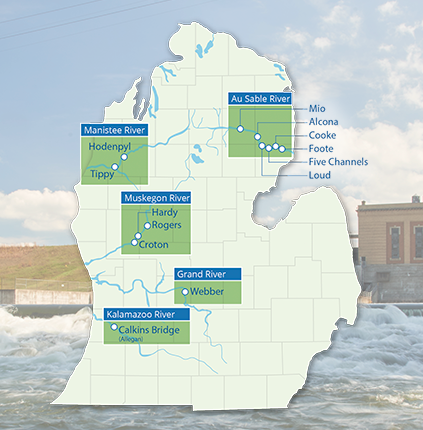Conference session to focus on workplace strategies in challenging times

Jeff Butler
With counties continuing to confront hiring, retention and workforce challenges across numerous specialties, the first plenary session of the 2023 Annual Conference (Oct. 1-3 in Kalamazoo County) will feature an expert strategist on “Building an Effective Multi-generational Workplace.”
“The modern-day workplace has four generations working under one roof: Baby Boomers, Generation Xers, Millennials and now Generation Z. All work together to accomplish common organizational goals, however, with differences in each of these generation’s viewpoints, upbringings, culture, ideas, beliefs and experiences, it is likely to see some tiffs or clashes within the organization. Hence, it makes managing four different generations in the workplace an extremely difficult task to accomplish, though not impossible,” says Jeff Butler, speaker and author. “With the right guidance, support and advice, the task of managing these four generations under one roof is achievable. The support may come in various forms, one of which is this program.”
Backed by a decade of psychological research, Butler will share insights about the motivations, differences and communication styles of these four generations. Attendees will learn how organizations across various industries are thriving with a multigenerational workforce and how yours can too. Through this program, you’ll find specific actionable strategies to manage your cross-generational challenges and turn your multigenerational workforce into a competitive advantage.
Registration continues for the 2023 Michigan Counties Annual Conference to celebrate MAC’s 125th Anniversary.
For details on pricing, hotel and more sessions, please click here.
For questions about MAC events, contact Tammi Connell at connell@micounties.org.
Utility takes step toward possible sale of its 13 inland dams
 The future ownership and operation of 13 dams owned by Consumers Energy (CE), a major topic of concern for Allegan, Newaygo and other counties, could be determined by the results of an RFP issued by the utility.
The future ownership and operation of 13 dams owned by Consumers Energy (CE), a major topic of concern for Allegan, Newaygo and other counties, could be determined by the results of an RFP issued by the utility.
Consumers’ 13 hydroelectric dams have federal licenses that are set to expire in 2034, so CE has spent the last several months exploring options, including renewing the licenses or selling the dams. The dams are costly to maintain and generate little energy but are responsible for preserving many of Michigan’s rivers and inland lakes. CE hosted a community tour last year where many residents and local leaders voiced their desire for the dams to remain in place.
CE has commissioned an economic impact study using a neutral third party, which was directly requested by a group of county commissioners. The results of that study are expected to be revealed in the coming weeks, and a second round of community tour visits has been planned, a list of which can be found here. The RFP is not a guarantee that the dams will be sold. It is simply another step in CE’s consideration of all possibilities moving forward.
MAC will continue to provide updates as they become available.
For more information on this issue, contact Madeline Fata at fata@micounties.org.
NACo analyzes Treasury rule on ARP funding
 County leaders are encouraged to consult a new analysis from the National Association of Counties (NACo) on the Interim Final Rule (IFR) for the bipartisan State, Local, Tribal, and Territorial Fiscal Recovery, Infrastructure, and Disaster Relief Flexibility Act (i.e. Cornyn/Padilla Amendment).
County leaders are encouraged to consult a new analysis from the National Association of Counties (NACo) on the Interim Final Rule (IFR) for the bipartisan State, Local, Tribal, and Territorial Fiscal Recovery, Infrastructure, and Disaster Relief Flexibility Act (i.e. Cornyn/Padilla Amendment).
This provides counties with the flexibility to invest the $65.1 billion that was allocated under the American Rescue Plan Act’s (ARPA) State and Local Fiscal Recovery Fund (SLFRF) in transportation and infrastructure, disaster relief and community development.
“NACo successfully advocated for the inclusion of the Cornyn/Padilla amendment in the Fiscal Year 2023 Omnibus Package. Included below is an overview of the newly eligible uses under the IFR and how counties can use this new flexibility to support our residents and communities,” the analysis states.
Among key highlights are:
- The IFR provides counties with additional flexibility to invest the American Rescue Plan Act’s (ARPA) State and Local Fiscal Recovery Funds (SLFRF) in transportation and infrastructure projects, disaster relief and Community Development Block Grant (CDBG) program projects.
- The IFR does NOT alter existing eligible uses for SLFRF as outlined under the 2022 Final Rule.
- Counties may use ARPA funds for these newly eligible uses for costs incurred beginning Dec. 29, 2022.
- Counties may use funds for mitigation activities to lessen or avert the threat of a natural disaster and its potential physical or negative economic impacts.
- Counties must still obligate funds, including newly eligible activities, by Dec. 31, 2024.
- Counties must expend ARPA funds obligated to provide emergency relief from natural disasters by Dec. 31, 2026.
To read the full NACo analysis, click here.
NACo academy offers new class for leadership graduates
 The NACo High Performance Leadership Academy is now offering a special class to county leaders that have graduated from their initial training courses.
The NACo High Performance Leadership Academy is now offering a special class to county leaders that have graduated from their initial training courses.
“Leading on Purpose” (for graduates only) is an eight-week course that comes with a special fee of $500 for the first 500 participants. Intentionally designed from scientific evidence and proven practices of great leaders, “Leading on Purpose” will help existing and emerging leaders alike reappraise any longstanding purpose or uncover one for the first time with the use of self-assessments, interactive exercises, online and real-time peer discussions, cohort- based webinars and self-reflection.
The program runs from Oct. 16 to Dec. 15, 2023, and is for graduates of either the NACo High Performance Leadership Academy or the NACo Cybersecurity Leadership Academy.
To enroll in this new program, prior HLPA or Cybersecurity graduates can email Luke Afeman at lukea@pdaleadership.com or Tarver Hannant at tarverh@pdaleadership.com.
S taff picks
taff picks
- It’s time to fix eleventh-hour earmarking in the state budget (Citizens Research Council)
- How can state and local government overcome IT staffing gaps? (Governing)
- Report: Transportation and smart land use are key areas of focus for revitalization of rural communities (American City and County)
- Suburban Detroit woman says she found a live frog in a spinach container (AP News)
